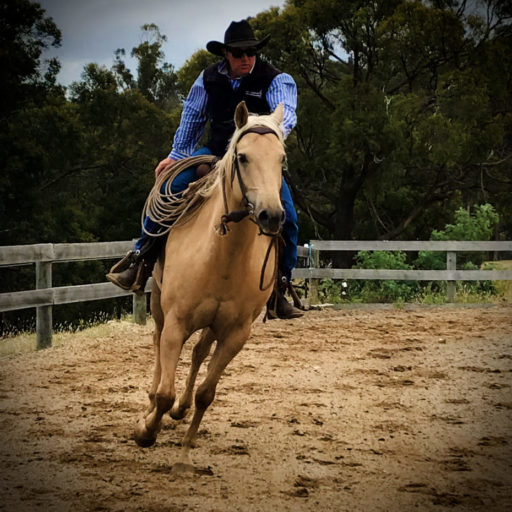
Real Women who Ride
Keeping it Real
I’ve been enjoying some travel time with Ian, teaching and supporting Ian’s training workshops as well as finding a bit more time for myself and our own horses. I’m not much for annual resolutions, but taking some time out at home for the holiday break I’ve found myself thinking about what I set out to accomplish during 2017, and found that my path meandered along as I found new things to be inspired about. I don’t believe that our path in life is straight, and it’s the winding bends that sometimes reveal the most amazing view.

View from the Spirit of Tasmania – Bass Strait
I have aspirations for my horsemanship, goals if you like, things that I am continually working towards. It is only on reflection that I realise I’ve achieved more than I think I did.
There is no doubt that working with horses requires a great many qualities, both internal and external, but I think the most important is having an honest dialogue with yourself. Regardless of your level of riding ability, we can all do little things to make a difference in our pursuit to be better horsemen and horsewomen.
This week I had thoughts that I had disappointed my horse – I set myself up for failure by not keeping the situation real. My failure was small in the scheme of things, I lost my balance riding and had an unexpected dismount. Nothing hurt, but I worried my horse during the process – on remounting I had to suck it up a little, find that inner confidence, and accept that I had created the situation and was accountable for what occurred.
Accepting that things don’t always go to plan is part of the process, there is an inherent risk in working with horses, and one that in order to progress we must be mindful of. One thing I know, I need to work harder off the horse on my fitness, core strength and balance, so that on the horse these critical things are more solid. This is never more evident as a mature rider than when returning to riding after a break, bringing horses back into work after a spell, riding young or green horses, or when building on training techniques which require me to have control over how my body operates so that I can more readily maintain and correct my balance. I need to spend more time in the saddle, working on what needs to be worked on to get these things solid. Never forget those foundations – the basics of softness, balance and relaxation, and allowing my horse to move forward encouraging these elements, and breathe so that I remain soft, balanced and relaxed.
One thing I am now more confident and secure with is keeping the whole thing real. I am at where I am at physically, and acknowledging this as I work on being a more fluid, balanced rider is liberating. Taking the realistic approach allows me to take a step back as I need to, and then taking that step forward with the knowledge that I am more capable and committed to doing the work that needs to be done.
This is where we need to keep it real. To progress as riders, we need to be physically up to the challenge, and it can be a challenge. This past 12 months I’ve worked steadily to be more physically up to the demands of riding, and in having this honest dialogue with myself, I need to do more. This doesn’t mean signing up to the gym or running up mountains. For me it means doing more exercise in a way that fits in with the demands of my lifestyle, and committing fully to the daily exercises set by my physio in order to have my body functioning in a more dependable way. To life an active life, I have to be more active – and let’s be honest, working with horses is active.
I am fortunate to meet many riders in our travels, from many different backgrounds, with vastly varying degrees of ability, experience and fitness, each one balancing the demands of their life with their desire to improve as horsemen and horsewomen. We all have one thing in common, our love of our horses and a willingness to do better by them. Keeping our successes and failures real and in perspective is important to our growth as riders, and to do better by them we must work to do better by ourselves. If you need a motivation to work on your fitness, remember how much it will benefit your horse and your riding. Find those 30 minutes a day to do that something better, find them to feel better and live better. If you need a reason to find those 30 minutes, look at your horse.
I will continue to work on this as we do everything, both on and off the horse – one step at a time.
Oh, and sometimes the view from home is the very best view of all.

Liz Leighton © January 2018














